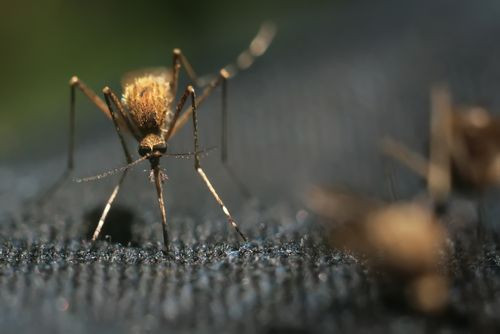Malaria Treatment Search Yields Identification Of Enzymes Crucial To Parasite Growth

Born and raised in Dehli, India, Dr. Rita Tewari of the University of Nottingham had malaria seven times as a child. Now, after both personal and intellectual struggle, she and her colleagues have isolated 30 protein phosphatases and 72 kinases — enzymes that regulate cell processes key to the lifecycle of the malaria parasite. "This latest study identifies how protein phosphatases regulate parasite development and differentiation,” said Tewari in a press release about her latest research. “If we can find out what proteins are essential for these parasites to develop and divide, maybe we can target those proteins and arrest them with drugs or vaccines."
How Malaria Is Spread
Although most of us know that malaria is transmitted by mosquitoes, what we don’t know is this disease is caused by Plasmodium parasites. There are four types of this parasite, ranging in virulence. Malaria transmission begins when Anopheles mosquitoes, which commonly bite between dusk and dawn, ingest blood infected with Plasmodium parasites.
Fertilization takes place in the insect's gut, where the parasites multiply and begin to colonize the entire mosquito, eventually migrating to the salivary glands. When a thoroughly infected mosquito bites again, parasites can now be injected into the human host, where they gather and multiply in the liver, and eventually invade the red blood cells. Ten to 15 days after a bite, life-threatening malaria symptoms begin, causing fever, headache, and vomiting.
Until now, scientists have had only a sketchy knowledge of Plasmodium parasite development, and so Tewari and her colleagues have focused on learning more about the biology of these parasites, specifically enzyme and protein interactions. Their research is based on a very simple theory: If they can disrupt the lifecycle of the malaria parasite with drugs or vaccines, this would be one possibility for saving human lives. In 2012, the number of malaria cases amounted to nearly 207 million, which caused an estimated 627,000 deaths, mostly among African children.
Over the course of eight years, the research team worked to painstakingly isolate and identify every one of the phosphatases and kinases responsible for malaria parasite development in mice. During their exploration of these enzyme "switches," which turn cell development proteins on and off, the team found that slightly more than half (or 16) of the phosphatase genes could not be "knocked out" by use of various biochemical techniques. This suggests these genes are crucial to parasite growth, and, if you are looking to disrupt the life-cycle, then these genes would make perfect drug targets. Among the 14 genes that could be knocked out, the research team discovered six to be critical for sexual development. These, too, might serve as drug and vaccine targets to inhibit the development of this highly efficient parasite.
“The research gathered here using the mouse malaria parasite can be directly related to the human malaria parasite, as many of the genes share a very similar homology and symptoms of the diseases are very similar,” Tewari said. "Resistance to anti-malarial drugs is increasing. As a result, the race to uncover new vaccines and more effective drugs to treat disease and block malaria transmission is becoming ever more important." Clearly, the life of this scientist inspires her worthy and remarkable work.
Source: Tewari R, Holder T, Guttery D, et al. Cell Host and Microbe. 2014.
Published by Medicaldaily.com



























